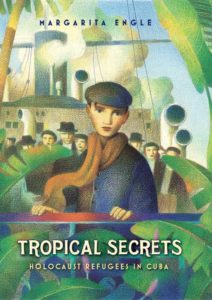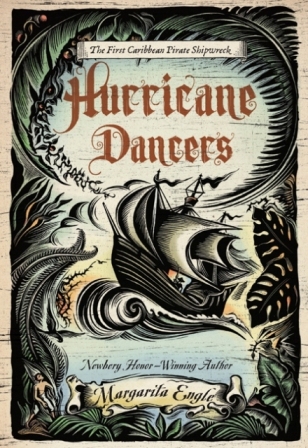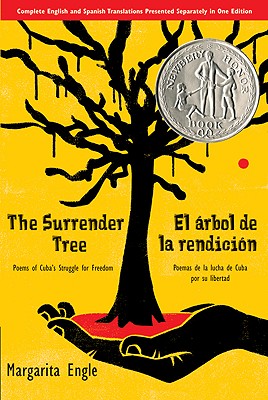 Daniel has escaped Nazi Germany with nothing but a desperate dream that he might one day find his parents again. But that golden land called New York has turned away his ship full of refugees, and Daniel finds himself in Cuba. As the tropical island begins to work its magic on him, the young refugee befriends a local girl with some painful secrets of her own. [Publisher’s description.]
Daniel has escaped Nazi Germany with nothing but a desperate dream that he might one day find his parents again. But that golden land called New York has turned away his ship full of refugees, and Daniel finds himself in Cuba. As the tropical island begins to work its magic on him, the young refugee befriends a local girl with some painful secrets of her own. [Publisher’s description.]
This book of historical fiction by Margarita Engle for ages 10+ tells the story of refugee ships from Germany during WWII, turned away from the U.S. and Canada, that sailed on to Cuba.
Despite an intense anti-Semitic propaganda campaign waged by German government agents in Cuba, and the fact that the island of Cuba is much smaller and poorer, Cuba took in 65,000 refugees. This is the same number as were taken in by the United States.
ISBN: 9780805089363 | Henry Holt and Co.
Reviews
“As in The Poet Slave of Cuba (2006) and The Surrender Tree (2008), both selected as Booklist Editors’ Choice titles, Engle’s latest book tells another story set in Cuba of those left out of the history books. In fluid, clear, free verse, two young people speak in alternating personal narratives . . .the international secrets make for a gripping story about refugees that becomes sharply focused through the viewpoint of the boy wrenched from home, haunted by the images of shattered glass and broken family.” —Booklist
“This moving free-verse historical novel tells the tale of thirteen-year-old Daniel, a Jewish refugee who escapes Nazi Germany in 1939 in hopes of finding safety abroad. . . . the emphasis on the inner life of the characters gives the narrative an emotional drama that transcends its period.” —BCCB
“Readers who think they might not like a novel in verse will be pleasantly surprised at how quickly and smoothly the story flows . . . The book will provide great fodder for discussion of the Holocaust, self-reliance, ethnic and religious bias, and more.” —VOYA









Twitter
Google plus
LinkedIn